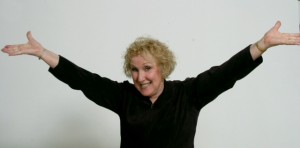I am sitting cross-legged in bed on a morning set aside from others in the Jewish religion in which I was raised. As a child, at this point in the day, I would be in synagogue, wearing a dress, knee socks and black patent leather shoes, while perched on a folding chair next to my father, who would (instead of his work uniform) be dressed in a suit and tie, yarmulke on his curly brown hair, his tallis (prayer shawl) wrapped around one of his shoulders and one of mine (girls and women back in the 1960’s and 70’s didn’t wear them). We would be reciting prayers from the High Holy Day tome in supplication and request for forgiveness with the fervent hope that as the sun set on this Yom Kippur, we would ‘Inscribed in the Book of Life for a sweet New Year’. Even at that age, I pondered how that could be. Surely, there were ‘good people’ for whom tragedy befell. People who got sick and some who died. And I also knew that there were ‘bad people’ who prospered. My parents had no answer for my queries about that seeming inequity.
For decades, I engaged in that routine. Walking to services, abstaining from food from after dinner the night before until the traditional break the fast dinner at sundown the next day, we were reminded that we were to focus on spiritual needs at the sacrifice of physical desires. It didn’t seem harsh, just expected. Children under 12 were allowed to eat something light. Adults who were ill were permitted to have food as well. I remember a few years as a teen when it felt like a marathon that I needed to complete as a food deprivation headache would be pounding as surely as my feet might have been on a race course. Today, I am abstaining from food until gathering with my BFF and her family and friends tonight at which we formally break the fast.
The focus was acknowledging our sins and practicing Teshuvah (which translates to ‘turning’, as in turning over a new leaf). The Hebrew word for sin doesn’t imply hellfire and brimstone as it does in Christianity. Instead, it translates to ‘missing the mark,’ as in archery. An annual do-over, a sense of taking inventory and making amends as in Step 4 and Step 9 in the 12 Steps of AA. I always liked that aspect.
As a college student, I turned away from traditional ritual since I had a series of negative encounters with the Rabbi at our synagogue whose sexist attitudes were at odds with how I was raised. Instead, I would create my own in which I would sit by a body of water, journal taking on the ink that fed my need to express my inner strivings. I would take time to meditate on the previous year and fast forwarding to what I wanted in the upcoming months and years. It was soul-satisfying and nourishing in ways that surpassed food.
In my 30’s, living in South Florida with my husband Michael, we became part of a community led by Rabbi Rami Shapiro. The services for the High Holy Days took on renewed meaning for me as once again, I felt enwrapped in protective love as I had with my dad.
There I experienced both tradition and transcendence. The prayer book we used was called Unhewn Stones. I have a dog-eared version by my side now and will be bringing it with me to the park where I will soon do my ritual.
One aspect of the day is asking for and offering forgiveness for anything we have said or done that might have caused harm either intentionally or unintentionally.
It occurred to me in the wee hours this morning, how much I have wronged myself, sometimes on purpose.
I forgive myself for:
Holding on to beliefs about myself and others that are harmful
Believing in lack and limitation
Emotionally starving and depriving myself
Working myself into a heart attack (literally, in 2014)
Holding unreasonably high standards for myself
Tormenting myself with memories of things I can’t change
Justifying not having what I want because of those choices as if punishing myself for them
Feeling frustration that no matter how hard I work, I am still not where I want to be professionally
Judging others who are in that lofty position who seem not to work as hard, but because someone ‘discovered’ them
Not allowing myself to be completely human, with a full range of emotions and needs
Rejecting myself
Tap dancing for approval
Being a chameleon to earn love and simultaneously holding it at bay when someone willingly offers it
Hiding my light under a bushel
Shaming myself
When I doubt my worthiness, this poem always brings me back to the knowledge that I loved beyond measure. It was part of the Yom Kippur services he led.
Unending Love (by Rabbi Rami Shapiro)
We are loved by an unending love.
We are embraced by arms that find us
even when we are hidden from ourselves.
We are touched by fingers that soothe us
even when we are too proud for soothing.
We are counseled by voices that guide us
even when we are too embittered to hear.
We are loved by an unending love.
We are supported by hands that uplift us
even in the midst of a fall.
We are urged on by eyes that meet us
even when we are too weak for meeting.
We are loved by an unending love.
Embraced, touched, soothed, and counseled,
Ours are the arms, the fingers, the voices;
Ours are the hands, the eyes, the smiles;
We are loved by an unending love.
On this day, I don’t wish myself an ‘easy fast,’ as is often wished for us, but rather a powerful, healing, meaningful and redemptive fast that pushes the re-set button for me.

